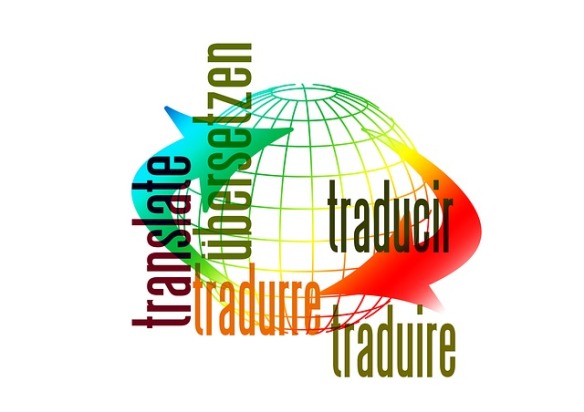Cultural Life has become very language-focused recently. This wasn’t entirely planned by me, it simply seemed to happen! I promise I will soon start writing about something other than language because variety is the spice of life, as the cliché says, but bear with me for the moment! I’ve had a great response to my linguistically themed posts and I’m glad you’re all enjoying them. Within the next few days, I’ll publish a follow-up post discussing the results of the “How do children learn language?” poll in my previous post. If you haven’t voted yet, now is the time to vote!

Public domain image source
This post is a Zero to Hero blog challenge post: day 12. It is slightly later than planned because it involved research and research takes time. But it doesn’t take very much time when you simply can’t find anything about the thing you are researching, unless you are me, in which case you are frustrated by the lack of information and persist in researching and trying to find something, even when it’s past your bedtime and you really should be turning out the light.

Public domain image source
What was I researching? Let’s start at the beginning. Our day 11 Zero to Hero challenge was to leave three comments on three different blogs which we hadn’t read before. Our day 12 challenge was to take one of these comments and write a blog post about it. So, off I trotted into the great blogosphere and it didn’t take me long to find something which made me stop to investigate: this post at jblblog, about the usage of “at all” at the end of a question. For example, the author of the post, JBL, has come across this feature “in the context of a cashier or waitperson asking the question “Would you like a receipt at all?”” (quote from linked post: “At All”).
I have never heard “at all” used like this before. It interested me and I wanted to find out more about why it is being used and what (if anything) it signifies, where it is used (JBL comments that it is common in Minnesota but apparently in Arizona too) and whether there are any linguistic studies of its use.
Unfortunately, I’ve drawn a blank and found nothing. Despite searching Google Scholar and various different academic journals and trying various keywords I haven’t found a single study about this use of “at all”. I even sent an email to one of my linguistics teachers; she said that although she has heard it used in this context and suggests that it “sound[s] like something you would associate with service speech“, she isn’t aware of any papers about it.
Having thought about it, my theory is that “at all” used in this type of way could be a linguistic device used to signal politeness. That theory would fit, considering JBL’s observations of it being used by service providers such as cashiers and restaurant staff. However, for now there isn’t a concrete answer about this interesting discourse feature.
Have you heard “at all” used at the end of a question? Do you use it at the end of questions yourself? If you do use it or have heard it in use, it would be great to hear from you in the comments section.

‘At all’ over here (UK) is also used as a politeness indicator but, more subtly, I think it also can have a softening role….
I mean, if someone said ‘Do you want your receipt at all?’, that could just be a language habit they’ve picked up on, so it becomes a politeness indicator tacked onto the end of any question in which one wants to show politeness e.g. at work.
But I’m sure I’m heard it (and used it) strategically to broach matters which traditionally we’re supposed to hedge around, most notably, MONEY 🙂
Obviously I don’t mean ‘Heave you got any money at all?’ as that mean something quite different lol. I mean I might say to a client, ‘And do you have any idea of budget at all?’ as opposed to ‘what’s your budget?’. Hedgey hedgey hedgey!!
LikeLike
Yeah, I think the main reason for using “at all” in this context must be due to politeness factors.
But in other contexts, using “at all” as a linguistic hedge is a very interesting thought! Thanks for your comment. 🙂
LikeLike
At all is not familiar. Maybe it’s one of those regional things. The funniest use of words that has stayed with me was this: “Is the game still over yet?” This was at a pro basketball game years ago, and I giggle every time I remember that line.
LikeLike
That is an amusing and slightly confusing use of words! Was that sentence said to ask whether the game had finished?
LikeLike
I’m sure I’ve heard “at all” used in that context here in TX. It’s not common, but it doesn’t strike me as strange either. And, remember, we do say things like “fixing to” down here!
LikeLike
I love language variation! 🙂 Do you hear “might could” ((for example, “I might could go there next week”) used in Texas as well?
LikeLike
All the time, especially with older people and those who grew up in the country.
LikeLike
Hi Grace, thanks for your comment and post! The observation that prompted my post was this comic
http://www.gocomics.com/fminus/2013/12/25
in which “at all” is used at the end of a question, but not in a way consistent with a politeness marker (or at least, to me it is not obviously so). In my day-to-day life, though, I don’t remember hearing this usage outside of the service context.
LikeLike
Hi, thanks for joining the conversation. 🙂 Ah yes, now the example of the comic is very interesting because, as you point out, it doesn’t look like “at all” being used as a politeness marker. Hmm, there must be other factors at work….
LikeLike
I use at all often…but not sure if it is a politeness factor…rather, i would probably use it for emphasis…and it can be used for statements other than questions too…”I didn’t like that guy at all!” could be an example…not very polite , though 🙂
LikeLike
Yes, I definitely use “at all” in the context of statements and emphasis, such as the example you pointed out. The thing which really interested me was the extraneous use of “at all” at the end of a question, e.g. “Do you need a receipt at all?” because I hadn’t heard it used like that before.
Thanks for your comment. 🙂
LikeLike
Right, I think there are several differences between the example here (“I didn’t like that guy at all!”) and the other examples (“Would you like a receipt at all?”, “Did you know it was Christmas at all?”). Of course there’s the question/non-question distinction, but also one can say “I didn’t like that guy a lot” or “I didn’t like that guy a little” to indicate variations of feeling, but the options for the receipt are either that you want it or you don’t. In other words, the question is not about the extent to which the customer wants the receipt, which is how I use “at all” in questions (“Did you like the movie at all?”).
LikeLike